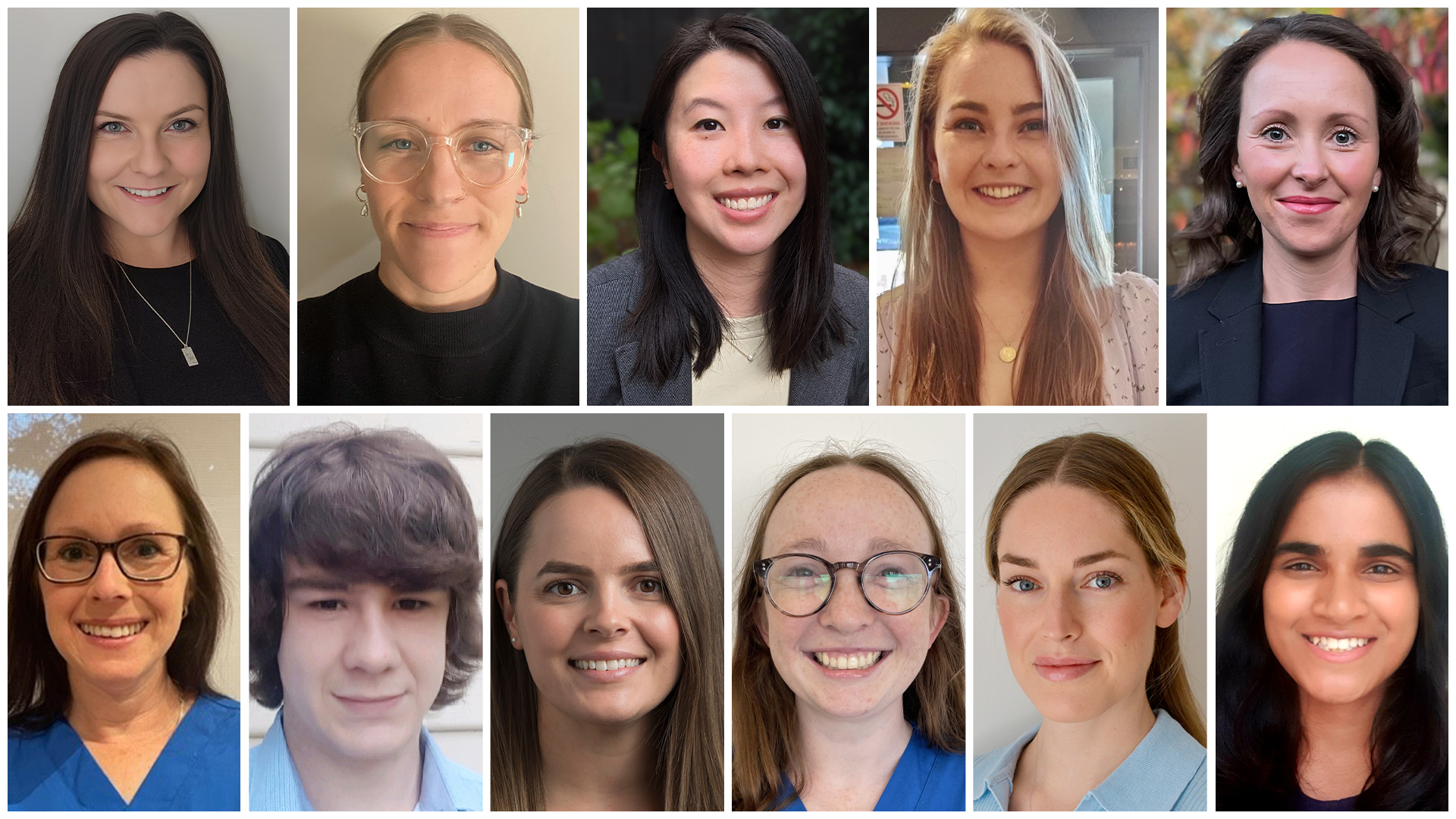
It’s not every day you’re given the opportunity to change people’s lives and the future of healthcare.
However, for 11 lucky Monash Health employees, that’s exactly what happened last month when our 2023 Emerging Researcher Fellowships were announced.
The Monash Health Emerging Researcher Fellowship invests in early research career individuals with significant potential by supporting them to conduct a translational research project.
Urology Registrar Yen Lim was selected as one of this year’s Fellowship recipients and will be conducting research on whether a new prostate biopsy technique, using a PrecisionPoint Transperineal Access System (PPTAS), is more efficient than current practices.
“The main benefit of the biopsy technique is it can be performed under local anaesthesia instead of general anaesthesia, so we’re hoping it will alleviate pressure on our waiting lists and use less theatre space,” she said.
For Yen’s research project, the PPTAS is much less invasive than current practises where template biopsies – taken by making multiple punctures through the skin – are used, and will limit the number of punctures through the skin.
Monash Health performs between 200-300 prostate biopsies each year, which are fundamental in the diagnosis of prostate cancer in Australia.
“The process of waiting for a cancer diagnosis can be anxiety inducing, particularly if patients have to wait for longer periods for a diagnostic procedure,” Yen said.
“Hopefully this new biopsy technique allows us to increase the volume of biopsies and shorten the waiting period for patients.”
Senior Cystic Fibrosis and Paediatric Dietitian Caitlin Miles was another of the talented individuals who received an Emerging Researcher Fellowship to investigate the gastrointestinal and nutritional changes in children with cystic fibrosis (CF), aged between 6-11 years old, after beginning a new revolutionary medication.
The highly effective triple combination CFTR-modulator therapy, comprising of elaxacaftor/tezacaftor/ivacaftor (ETI), was only approved for use in this age group in May this year and is expected to have a huge impact on the reduction of CF symptoms – which include chronic lung infection and inflammation, malabsorption of nutrients, poor growth, gastrointestinal symptoms and more.
“Cystic Fibrosis is a genetic condition, so the ETI therapy essentially works to correct the malfunctioning protein made by the CFTR gene,” Caitlin said.
“Fortunately, ETI therapy targets the most common genetic mutation, delta F508, which accounts for 70 per cent of all CF mutations meaning a large proportion of the CF population are now potentially eligible for this new therapy.”
With cystic fibrosis affecting one in 2500 births, and with Monash Health treating over 100 children with cystic fibrosis each year, Caitlin said the disease was set to be completely revolutionised by the new therapy.
“We’re hoping the nutritional and gastrointestinal changes will be more pronounced in this younger age group because there has been less disease progression in their time,” she said.
“Before ETI therapy became available for older children and adults, many of our CF patients were significantly more unwell than they are now, with frequent hospital admissions for intravenous antibiotics and the need for numerous gastrointestinal and nutritional therapies and medications.
“Our hope with ETI therapy, is that younger children will have improved absorption of nutrients, will require less, if any, nutritional and gastrointestinal medications and will no longer require supplementary feeding, such as PEG tubes.”
The full list of the 2023 Emerging Research Fellowship recipients and their research can be found below:
| Recipient | Study Title |
| Shay Payne, Medical Physicist Trainee | Develop an AI-based algorithm for converting 3D tomosynthesis images into simulated 2D mammography images |
| Caitlin Miles, Senior Cystic Fibrosis and Paediatric Dietitian | Gastrointestinal and nutritional changes post elaxacaftor/tezacaftor/ivacaftor (Trikafta®) in children 6-11 years old with cystic fibrosis |
| Yen Lim, Urology, Registrar
| PrecisionPoint Prostate biopsies performed under local anaesthesia: A prospective outcome analysis |
| Adele Dauncey, Speech Pathologist, Monash Children’s
| Examining oral feeding practices for premature infants who are receiving respiratory support on a neonatal unit |
| Mihiri Weerasuria, Infectious Diseases Fellow
| Understanding factors that would enhance women from culturally and linguistically diverse backgrounds participating in HIV cure clinical research |
| Erin Russell, Senior Dietitian, Gastroenterology
| Single point rectus femoris ultrasound as a rapid bedside assessment tool for the diagnosis of sarcopenia in decompensated chronic liver disease |
| Eliza Flanagan, Gastroenterology Advance Trainee
| Hep C and Me |
| Grace Schofield, Grade 2 Speech Pathologist Neurosciences, Movement Disorders and Geriatric Evaluation and Management
| Developing and refining Project QWERTY through co-production |
| Kimberley Pitruzzello, Clinical Nurse Educator, Paediatric Intensive Care
| Peer to peer learning – what constitutes an expert critical care nurse and can this be defined in a way to inform training of “novice to expert” |
| Leonie Ortlipp, Occupational Therapist and Lymphoedema Practitioner
| Effectiveness of telehealth vs face-to-face appointments in identifying complications following breast cancer surgery |
| Maeve Masterson, Medical Physicist
| Radiation side effects in Fluoroscopy guided neurointerventional radiology procedures |
Research Strategy and Cancer Services Program Director, Professor Bill Sievert, led the Selection Committee for the Fellowship and said on their behalf, he would like to congratulate the successful applicants and welcome them as new Emerging Researchers.
Congratulations again to all this year’s Emerging Researcher Fellowship recipients. To find out more about their research, head here.


